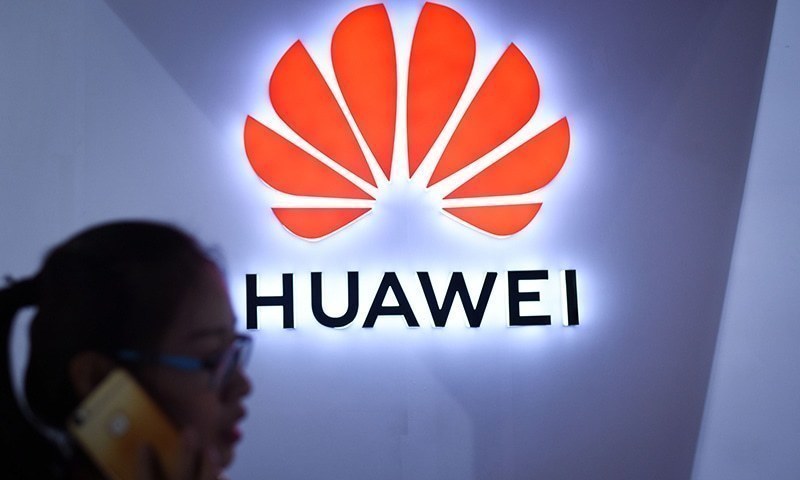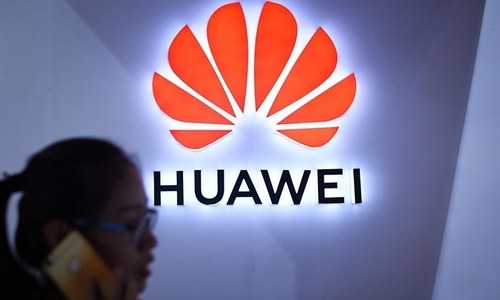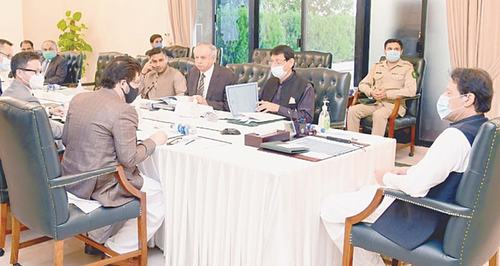Huawei on Tuesday released a statement denying allegations that it spied on Pakistan and stole trade secrets, saying there is no evidence it ever implanted any "backdoor" in its products.
The statement comes after a US-based company — Business Efficiency Solutions (BES) LLC — sued Huawei in a California federal court for allegedly stealing its trade secrets following their work together on a project for the Punjab government.
In its complaint, the company also accused the Chinese tech giant of using its technology to create a "backdoor" that allowed it to collect sensitive data "important to Pakistan's national security".
According to the statement released by the tech company on Tuesday, Huawei Pakistan had filed for arbitration in an Islamabad court against BES over "ongoing contract disputes" in September 2018.
The arbitration process is still ongoing, the company said, adding that it would not comment on ongoing legal cases. "Huawei respects the intellectual property of others, and there is no evidence Huawei ever implanted any backdoor in our products," the statement said.
The allegations in the suit stem from a long running legal dispute between the companies, it said.
"Huawei hired BES to provide software and other services to help it win the rights to build Lahore’s Safe City project in 2016. The relationship soured, and Huawei sued BES in Pakistan, where BES also sued Huawei. Those proceedings are ongoing. BES is no longer operational and has no revenue," the statement said.
The statement also said that Huawei had acknowledged setting up a separate version of the Lahore project in China in comments to the Wall Street Journal; however, it was a test version that was physically isolated from the customer’s live network.
"This made it impossible for Huawei to extract data from the customer’s live network," the statement said. The customer it referred to in this case was the Punjab Safe Cities Authority.
The allegations
According to the complaint filed by BES, Huawei subcontracted with BES in 2016 for its $150 million bid to develop software for a government programme providing new technology for police and law enforcement in Lahore.
BES said it created software for the project that collects data from government agencies, controls access to buildings, monitors social media and manages drones, among other things.
The eight software systems BES developed for the project included proprietary code, designs, diagrams and other information that are "valuable trade secrets at the core of BES's business," the complaint said.
Huawei officials allegedly demanded that BES send this information to the company in China for testing, and BES said it agreed to the demand but terminated its authorisation to use the technology after Huawei revoked its access to the testing laboratory.
The complaint said Huawei has yet to return any of the confidential software design tools or uninstall the software, as BES said it had agreed to.
BES said Huawei later demanded it install its data aggregation software — used by Pakistani law enforcement to collect and analyse "sensitive data from different sources and government agencies" — in its Chinese lab, "this time not merely for testing purposes but with full access to data at the Lahore Safe City project".
BES said it agreed, under threat of termination and withheld payments, after Huawei said it had approval from the Pakistani government.
The complaint accused Huawei of using the software "as a backdoor from China into Lahore to gain access, manipulate, and extract sensitive data important to Pakistan's national security".
BES also said that Huawei never paid for some of its software, and that Huawei is misusing its trade secrets in similar "Safe City" projects in Pakistan and around the world.
Authorities looking into allegations
For his part, the Punjab Safe City Authority Chief Operating Officer Kamran Khan said that the authority had formed teams to check for a data breach but could not find any evidence as yet.
He said that teams were still trying to determine if there was a data breach, but added that a third party audit had been conducted which did not find any such violation.
According to Khan, Huawei was assisting the authority technically and had to provide software to develop its data bank. "Out of the seven software systems agreed upon, the authority has only received three till date," he said.
He said that the authority had developed its own firewall to protect data and it was regularly updating it to avoid any type of breach, adding that Huawei only had access to the cameras installed in the city and were not in possession of any other data.













































